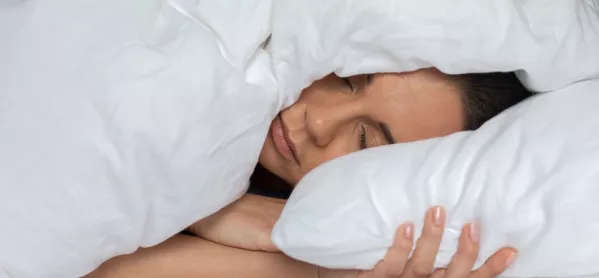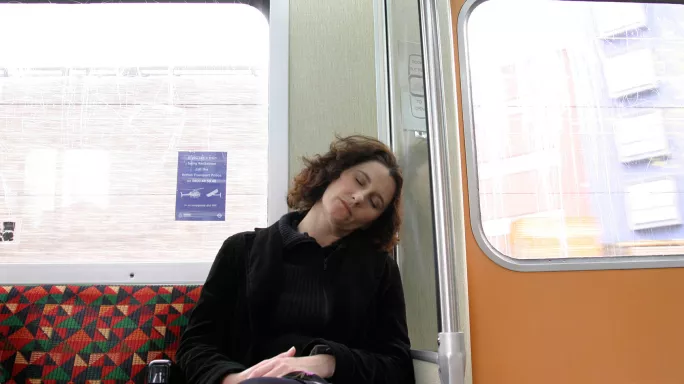How much should you sleep in the school holidays?

Staying in bed until noon in the holidays may sound like the ideal remedy to the sleep deprivation of term time, but that may not be the case.
Dr Guy Meadows, clinical director of sleep consultancy Sleep School, explains that problems can arise when we make major changes to our routine.
“The human body loves regularity, specifically our internal body clock,” he says.
Quick read: Five signs that you’re close to teacher burnout
Quick listen: The truth about mental health in schools
Want to know more? Put your mind at rest this summer
“There are 20,000 clock cells in the suprachiasmatic nucleus in your brain, and this is responsible for keeping every biological process on time.”
But knocking these “clocks” out of sync is surprisingly easy, he explains, and can lead to “social jetlag”, where the body struggles to get back into a working-hours routine after six weeks of disruption.
That’s bad news for teachers who rely on the summer break to catch up on their sleep after an exhausting term.

But according to Dr Neil Stanley, former chairman of the British Sleep Society and author of How To Sleep Well, that just isn’t how bodies work.
“You can’t live badly the rest of the year and expect to be able to catch up over the summer,” he says.
So how can teachers avoid social jetlag, and sleep like a champ? The answer, according to Stanley, is a simple, but slightly painful one.
“The single most effective thing you can do for your sleep is to maintain a fixed wake up time, seven days a week, 365 days a year,” he says.
Instead of satisfying your sleep cravings with late alarms, Stanley urges teachers to try afternoon napping. “If you’re tired, the most effective way to get more sleep is to have a nap. It’s much better than having a lie-in.”
But what does effective napping look like?
20 minutes or two hours
“A 20-minute power nap is good for boosting performance, but a siesta-style two-hour nap gives you the benefit of sleep,” Stanley advises.
But beware the temptation to extend a nap. “You must set an alarm on your phone for two hours, because you don’t want to wake up in your deep sleep, because then you’ll feel like you’ve been run over by a bus.
“Also, if you sleep for too long, you won’t be able to sleep later that night. And don’t use the snooze button.”
Block out the world
It is a good idea to take yourself away from distractions, to ensure swift, unbroken sleep.
“A good nap requires you to withdraw from the environment, so you need to be able to disengage from where you are,” Stanley says. “Listening to something that isn’t stimulating or interesting is a good way to drift off.”
Get comfy
If you feel yourself drifting off on a sun lounger, or your sofa, staying put is probably not wise. “Don’t lie down on the couch if it isn’t comfortable, you’ll wake up with a painful neck,” warns Stanley. Instead, he suggests getting into bed, ideally with ear-plugs and eye shades.
Time it right
If you listen to your internal body clock, you’ll probably find that after you’ve eaten your midday meal, your body will be craving a nap.
“The best time to have a nap is in the afternoon when you have the natural dip in performance,” he says. “This means you can have a nice afternoon and evening, and make the most of the longer hours of sunshine.”
Exercise early
Stanley advises getting out and active first thing. “The best time to exercise is in the morning, when you get lovely bathing of blue light from the sun; you’re telling the body it is daytime.
Plus, you need to do something during the day to earn your sleep; sleep is about repair, recuperation, laying down of memories, and if you haven’t done any of that then you don’t actually need sleep.”
You need a Tes subscription to read this article
Subscribe now to read this article and get other subscriber-only content:
- Unlimited access to all Tes magazine content
- Exclusive subscriber-only stories
- Award-winning email newsletters
Already a subscriber? Log in
You need a subscription to read this article
Subscribe now to read this article and get other subscriber-only content, including:
- Unlimited access to all Tes magazine content
- Exclusive subscriber-only stories
- Award-winning email newsletters